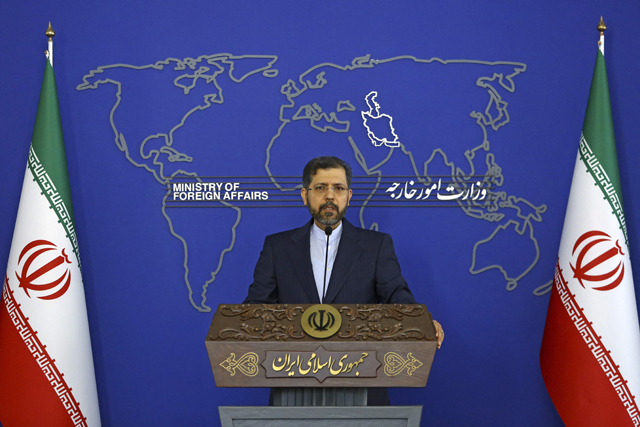TEHRAN — Iranian Foreign Minister Hossein Amir-Abdollahian will head to Moscow on Tuesday, his ministry said, days after negotiations to salvage the Iran nuclear deal stalled amid new Russian demands.
“Russia has made its official demands loud and clear, and this needs to be discussed among all parties to the 2015 agreement, like all the demands that have been presented by other parties,” Foreign Ministry spokesman Saeed Khatibzadeh told reporters on Monday.
“The foreign ministers of the parties [to the 2015 Iranian nuclear deal] are in constant contact” and Amir-Abdollahian “will go to Moscow on Tuesday to continue the discussions”, Khatibzadeh added.
More than 10 months of talks in Vienna have brought major powers close to renewing the landmark 2015 Joint Comprehensive Plan of Action (JCPOA) on regulating Iran’s nuclear programme. But the negotiations were halted after Russia on March 5 demanded guarantees that Western sanctions imposed following its invasion of Ukraine would not damage its trade with Iran.
On March 11, the European Union’s foreign policy chief Josep Borrell tweeted that the pause was “due to external factors”, despite the fact that “a final text is essentially ready and on the table”. The United States then put the ball in Iran and Russia’s courts.
“We are confident that we can achieve mutual return to compliance... [if] those decisions are made in places like Tehran and Moscow,” said State Department spokesman Ned Price. US Secretary of State Antony Blinken has dismissed as “irrelevant” the Russian demands for guarantees, saying that they “just are not in any way linked together”.
But on Monday, Iran’s foreign ministry spokesman repeated Tehran’s position that the move had to come from the US. “The remaining issues and points between us and the United States need political decisions in Washington,” Khatibzadeh said.
“If they [the US] announce that they have made a decision, then all the delegations can return to Vienna” to finalise a deal, he said, adding that for now “we are not at the point of announcing the agreement”.
Russian demands
Russia and Iran have seen relations improve in recent years, and Moscow plays a central role in enforcing the 2015 pact, in particular by receiving excess enriched uranium from Tehran. Iranian analyst Ahmad Zeidabadi said it was “normal” for Amir-Abdollahian to go to Moscow to ask “about the reasons behind the Russian demands”.
“Either he will try to persuade the Russians to make balanced demands, or he will support their position if he finds the reasons convincing.” The JCPOA aimed to ensure Iran would not be able to develop a nuclear weapon, which it has always denied seeking.
On Saturday, Britain, France and Germany warned against moves to “exploit” the JCPOA, seen as a tacit warning to Russia. “Nobody should seek to exploit JCPOA negotiations to obtain assurances that are separate to the JCPOA,” the British, French and German foreign ministries said in a statement.
“This risks the collapse of the deal, depriving the Iranian people of sanctions lifting and the international community of the assurance needed on Iran’s nuclear programme,” they added.
The 2105 deal gave Iran sanctions relief in exchange for curbs on its nuclear programme. But the US unilaterally withdrew from the accord in 2018 under then-president Donald Trump and imposed tough economic sanctions on different sectors, including oil exports.
The current round of negotiations started in late November in the Austrian capital between Iran and Britain, China, France, Germany and Russia, with the US taking part indirectly.
